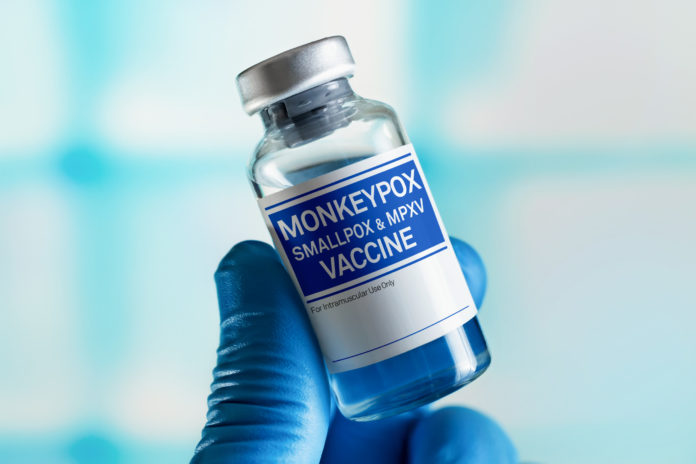Vaccines for the monkeypox virus should be prioritized for men who have sex with men, according to experts.
Monkeypox, a virus originally passed to humans from animals, now has over 15,000 confirmed cases worldwide across 71 countries, according to the Centers for Disease Control and Prevention (CDC). Earlier cases have been associated with gay and bisexual men—with many U.S. cases being linked to a single event. While anyone of any sexuality can contract the disease, as it is transmitted via skin-to-skin or skin-to-clothing contact, the initial influx of cases in the LGBTQ+ community has meant that men who have sex with men are currently most at risk of the virus.
Vaccines for monkeypox have recently been made available in the U.S. As of July 19, over 190,000 doses of the JYNNEOS smallpox and monkeypox vaccine had been distributed from the Strategic National Stockpile to aid in local vaccination efforts nationwide, according to the U.S. Department of Health and Human Services.

iStock / Getty Images Plus
There aren’t enough doses to vaccinate everyone, meaning that those most at risk need to be prioritized. From July 20, the vaccine will be available in Los Angeles for “gay men, bisexual men, men having sex with men, and transgender persons who were diagnosed with gonorrhea or early syphilis within the past 12 months; or are on HIV pre-exposure prophylaxis (PrEP); or attended or worked at a commercial sex venue or other venue where they had anonymous sex or sex with multiple partners within past 21 days,” said the Los Angeles County Department of Public Health.
“In any epidemic where you are trying to control the epidemic you give it to people most at risk,” Paul Hunter, a professor of health protection at the Norwich School of Medicine, University of East Anglia in the U.K., told Newsweek.
“For monkeypox, this is men who have sex with men and who participate in active sexual networks where they have frequent intimate contact with a range of others. That is the group where the epidemic is primarily spreading and that is the group where you need to target the vaccine in the first instance. Giving vaccines to people who are not really at risk isn’t going to achieve anything,” he said.
According to Hunter, men who have sex with men but are in an exclusive relationship are not at much risk, however, and therefore don’t need prioritizing for vaccine access at this point.
Newsweek has contacted the CDC for comment.
Hugh Adler, honorary clinical research fellow at the Department of Clinical Sciences at the U.K.’s Liverpool School of Tropical Medicine, agrees. “The [U.K.’s] Joint Committee on Vaccines and Immunization has recommended that [gay and bisexual men] who are at particularly high risk of monkeypox exposure be offered the smallpox vaccine—risk criteria not strictly defined, but would include for example having multiple partners,” he told Newsweek.
“There is only a four-day window for post-exposure vaccination, so it makes sense to offer pre-exposure vaccination to those at highest risk. Post-exposure vaccines can be [given] up to 14 days [after exposure], but are less effective after four days.”
There has been some concern that the association of monkeypox with the gay community may lead to a homophobic backlash similarly to what happened during the HIV/AIDs crisis in the 1980s.
Hunter also suggested that the vaccine could be offered to female sex workers, as their frequent skin-to-skin contact with clients may put them more at risk.
“I would add that I am concerned that there is a risk of transmission in heterosexual networks, though we have not really seen this yet, and I would want to start offering vaccine to female sex workers as well,” he said.
Symptoms of monkeypox can include fever, headaches, muscle aches, swollen lymph nodes and exhaustion, as well as a pustulous skin rash that may cause scarring. These symptoms are similar, but less clinically severe, to those of smallpox, which was officially eradicated in the 1980s.








